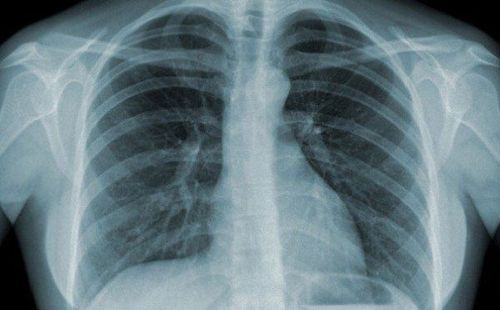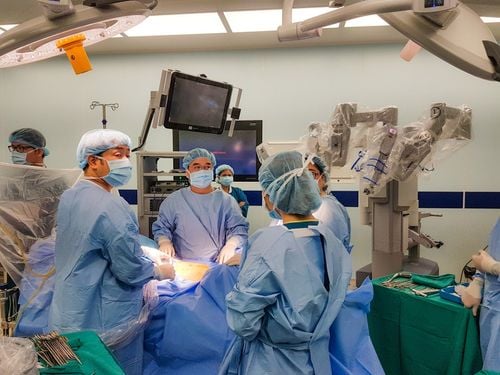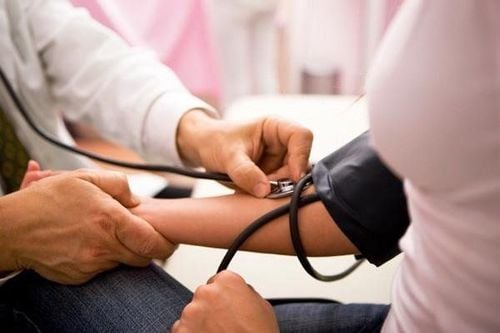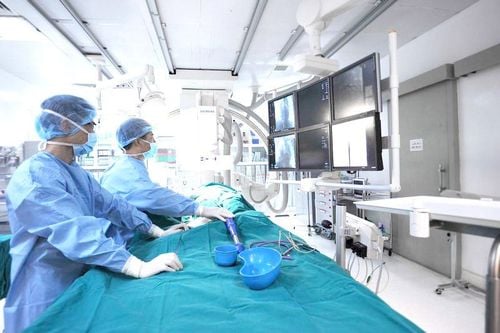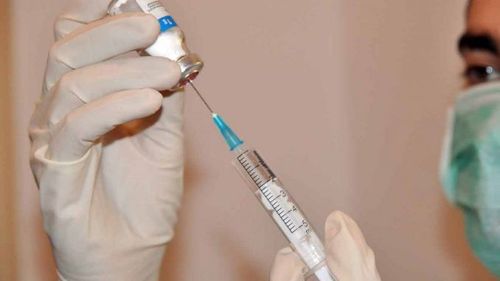This is an automatically translated article.
The article was professionally consulted by Dr. Nong Ngoc Son - Chemotherapy and palliative treatment - Oncology Center - Vinmec Central Park International General Hospital.Symptoms of lung cancer are not specific, are very diverse, rich, patients with the disease can experience many symptoms. However, the symptoms are very easy to confuse with other common diseases. Many cases of lung cancer patients have no symptoms at all, only discovered through routine physical examination or related medical examination, or when complications are severe. Symptoms of lung cancer can be divided into groups: bronchial symptoms, diffuse signs and extrapulmonary signs. Lung cancer can be recognized with characteristic syndromes.
1. Symptoms of lung cancer in the bronchi
Bronchial symptoms are the most characteristic in lung cancer, patients will have the following manifestations:Cough, persistent cough: This sign is similar to the common cold, so many patients do not go to the doctor. In fact, a persistent cough that leads to hoarseness and loss of voice can be caused by pneumonia, tuberculosis, or lung cancer. Sputum with blood: Even if the amount of blood mixed in the sputum is small, you should go to the hospital to check your health. If you have pneumonia, bronchitis has been treated for cough and fever, but the X-ray still shows lesions that persist for more than 1 month, it is necessary to investigate more closely to rule out lung cancer.
2. Signs of diffuse lung cancer
Patients will experience the following signs after the lung cancer spreads:Difficulty breathing, labored breathing, wheezing: Because this symptom may appear vague, many people are subjective. This condition is caused by a tumor in your lung that interferes with your breathing. Chest pain: This is a common sign of lung cancer. The pain usually occurs when the patient is active, coughs or takes a deep breath.

3. Other Lung Cancer Symptoms
Lung cancer patients may experience the following typical cancer symptoms:Rapid weight loss, unexplained rapid weight loss. Pain in joints in ankles, wrists, fingers, toes. Shoulder pain: This phenomenon occurs when a tumor grows and presses on the upper part of the lung, creating pressure leading to pain in the shoulder, arm, and hand. Not eating well or very tired Swollen lymph nodes in the neck, pits on the neck. Crooked fingers, big toes. Breast enlargement in men. When lung cancer has metastasized, patients will have typical symptoms at the site of metastasis and the primary tumor:
Bone metastases: Bone pain, especially in the hip and back area. Brain and spinal cord metastases: Changes in the nervous system such as dizziness, seizures, headaches, weakness or numbness in limbs... Liver metastases: Jaundice, yellow eyes. Skin metastases, Lymph nodes: Tumors on the skin surface, lymph nodes in the neck, on the collarbone.
4. 5 characteristic syndromes of lung cancer
Lung cancer can cause specific syndromes including:Horner's syndrome
This is a syndrome when cancer of the top of the lung affects the nerves that supply the eyes and part of the face, causing the following symptoms:
Weakness, drooping eyelids. Eye-pupillary constriction. Reduce or stop sweating in one area of the face. Shoulder pain. The superior vena cava is a large vein that receives blood from the head and arms to the heart, and runs through the upper right lung and the pulmonary lymph node chain. Lung tumors can press on this vena cava, causing symptoms, collectively known as superior vena cava syndrome, including:
Swelling in the neck, face, arms, or upper chest. Headache, dizziness, loss of consciousness. This symptom affects the brain, progresses slowly and can be life-threatening.
Paraneoplastic syndrome
There are cases where lung cancer produces Hormones into the blood, affecting tissues and organs even though it has not metastasized, this is called paraneoplastic syndrome.
Because this symptom affects other organs, causing symptoms more clearly than in the lungs, so it is very diverse, it is difficult for both doctors and patients to accurately detect the disease.

In this syndrome, cancer cells will secrete the hormone ADH, causing the kidneys to retain water, reducing the amount of salt in the blood and causing specific symptoms, including: Anorexia, fatigue, weakness muscle, cramps, vomiting, nausea, confusion, restlessness. This syndrome can lead to coma and stroke.
Cushing's syndrome
This syndrome makes patients susceptible to: weight gain, weakness, easy bruising, frequent lethargy, forgetfulness, high blood pressure and blood sugar.
Besides these syndromes, lung cancer can cause many problems in other parts and organs of the body that are difficult for both the patient and the doctor to detect the exact cause.
5. Who should go for regular health check-ups to detect lung cancer?
In particular, the following subjects must pay special attention to periodic health checks and screening to detect lung cancer because of their high risk of disease:Customers are Male or Female, over 50 years old. Customers who are regularly exposed to risk factors such as regular cigarette smoking - those who smoked for more than 25 years or had quit smoking for less than 15 years. People are often exposed to toxic chemicals, especially gases. People who live and work in a polluted environment. Along with that, each person needs to be conscious of protecting the health of themselves and their loved ones, whenever they notice any abnormalities, they should soon go to a reputable medical facility for diagnosis and treatment.
Health check, periodic cancer screening to detect lung cancer symptoms
As information above, lung cancer symptoms are not specific, very diverse, very difficult to detect, especially in ideal period for treatment. Only when the disease has grown too much, the cancer has spread far to other parts, the patient realizes the abnormalities. But at this time, the treatment is no longer effective, most of which is just to improve the disease condition, increase the quality of life and the patient's life time.
Therefore, periodic health check-ups and cancer screening are still methods that Vinmec doctors and experts always advise people to be able to detect lung cancer early. Most cases of lung cancer treatment at Vinmec are discovered by chance, due to cancer screening or treatment and diagnosis of related diseases.
Every citizen needs to go for regular cancer screening once a year. During screening, all respiratory and lung abnormalities are carefully examined by a respiratory specialist and given treatment. Customers can consult the Lung Cancer Screening Package at Vinmec International General Hospital to help detect lung cancer early (which are stage 1 and stage 2 lung cancers if any), helping to reduce mortality. due to lung cancer 20% compared with the high-risk group who had never been screened.
At the hospital, the Cyfra 21-1 testing service is performed with a team of leading medical and medical doctors in the province specializing in Biochemistry, dedicated and responsible; using Cobas E automatic immunoassay machine for the most accurate results and successfully supporting the treatment of lung cancer and other cancers for patients.
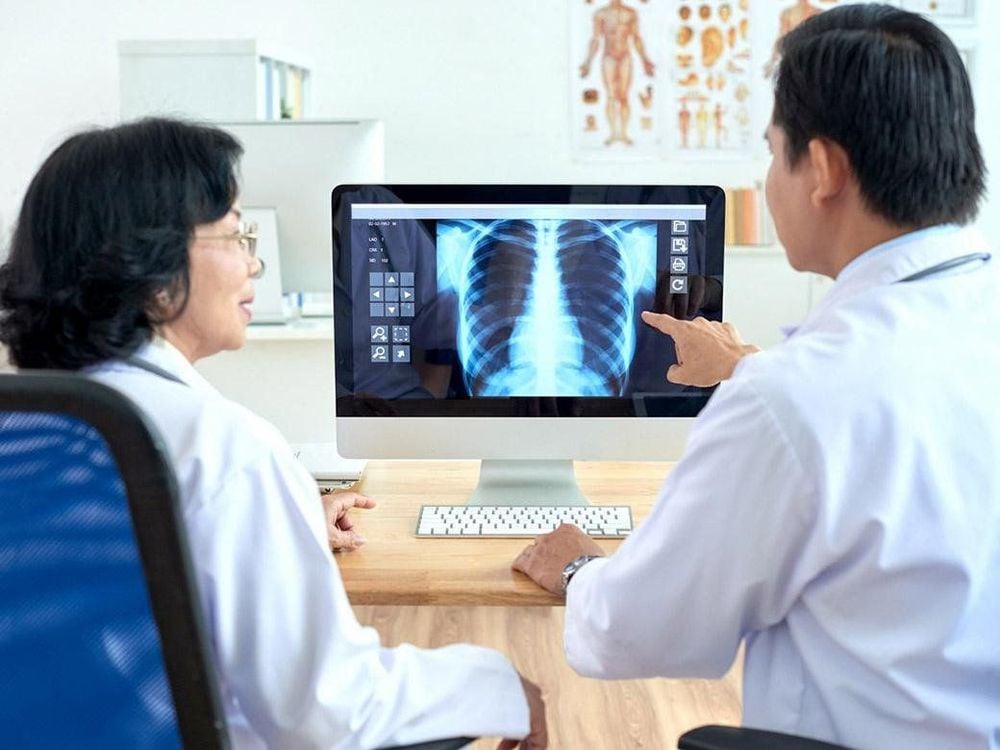
Lung cancer can be treated with surgery, radiation and chemotherapy. Surgery is being developed in the direction of minimizing invasiveness, minimizing injury to the patient, such as thoracic surgery, robotic surgery.
Recent radiotherapy techniques focus on treating specific tumors, on individual organs and depending on the patient population for a certain period of time.
At Vinmec International General Hospital, patients can be treated with SBRT - a radiosurgery technique that uses whole-body positioning, accurate to millimeters. SBRT is an alternative to surgery, shorter treatment time, high scoring accuracy, better results and simpler procedure than traditional radiotherapy.
In recent years, chemotherapy for lung cancer has also made a lot of progress. Particularly striking are new targeted therapies in patients with molecular genetic abnormalities. Among them, autologous immune-boosting therapy for lung cancer patients is a remarkable breakthrough.
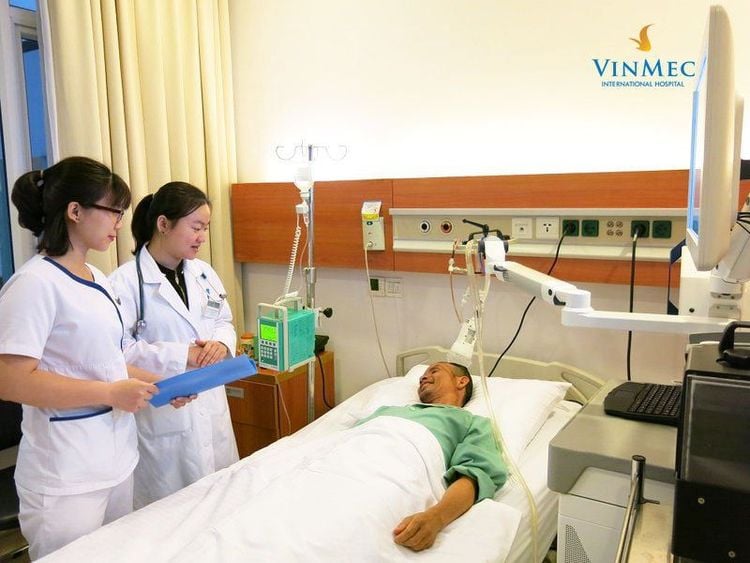
If you need more advice and examination at Vinmec Health System Hospitals nationwide, please book an appointment on the website for service.
Please dial HOTLINE for more information or register for an appointment HERE. Download MyVinmec app to make appointments faster and to manage your bookings easily.





